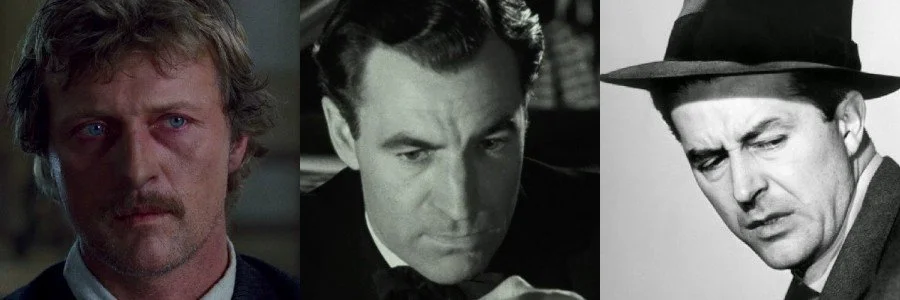FOR YOUR CONSIDERATION
In The Outrun Saoirse Ronan plays an alcoholic fresh out of rehab. Your choices, then, for what we’ll be screening on Tuesday 10 March are out of three more films about alcoholics struggling to overcome their demons to varying degrees of success. Up for the vote are…
The Legend of the Holy Drinker (Ermanno Olmi, Italy, 1989)
"Olmi eschews prosaic realism in his evocation of Paris, seen as an oddly timeless, universal city; the lyricism matches the almost magical coincidences of the plot...” Time Out
Rutger Hauer is Andreas Kartack, an alcoholic homeless man living under the bridges of Paris, who is lent 200 francs by an anonymous stranger (Anthony Quale). Andreas is determined to pay back his debt, but circumstances and his alcoholism forever intervene... Adapted from the novella by Joseph Roth, The Legend of the Holy Drinker is a quietly moving film which has the resonance and innocence of a parable.
The Lost Weekend (Billy Wilder, USA, 1945)
“What makes the film so gripping is the brilliance with which Wilder uses John F Seitz's camerawork to range from an unvarnished portrait of New York brutally stripped of all glamour.” Tom Milne, Time Out
Alcoholic writer Don Birnam (Ray Milland) is supposed to be spending a weekend away with his brother Wick (Phillip Terry) far from the hedonistic temptations of Manhattan. But when Don decides to have a one quick drink for the road and misses his train, he is overcome by self-pity embarks upon a four-day bender that just might prove to be his last... The Lost Weekend is both a moving melodrama and an absorbing attempt to show the misery of drink, and arguably Ray Milland’s greatest performance.
The Small Back Room (Powell & Pressburger, UK, 1949)
“It is a pleasure to find once more in the new Powell-Pressburger film, The Small Back Room, the old qualities: the irony of character, the tension of situation. A pleasure also to find Powell and Pressburger dealing with material worthy of them.” Dilys Powell, Sunday Times
Brilliant-but-tormented bomb expert Sammy Rice (David Farrar) is drafted into a top secret project by Army captain Dick Stuart (Michael Gough) concerning a new land mine German planes have been dropping over England's beaches. But despite the ministrations of his faithful assistant-cum-girlfriend, Susan (Kathleen Byron), Rice's increasingly problematic alcoholism and a recent injury threaten his ability to work... combining suspense, romance, and post-war trauma, Small Back Room is one of the last truly great Powell & Pressburger films - and perhaps their most criminally underseen.

